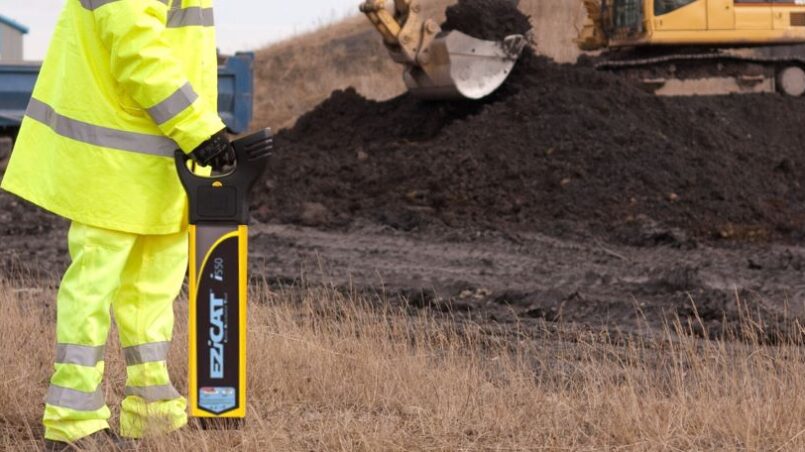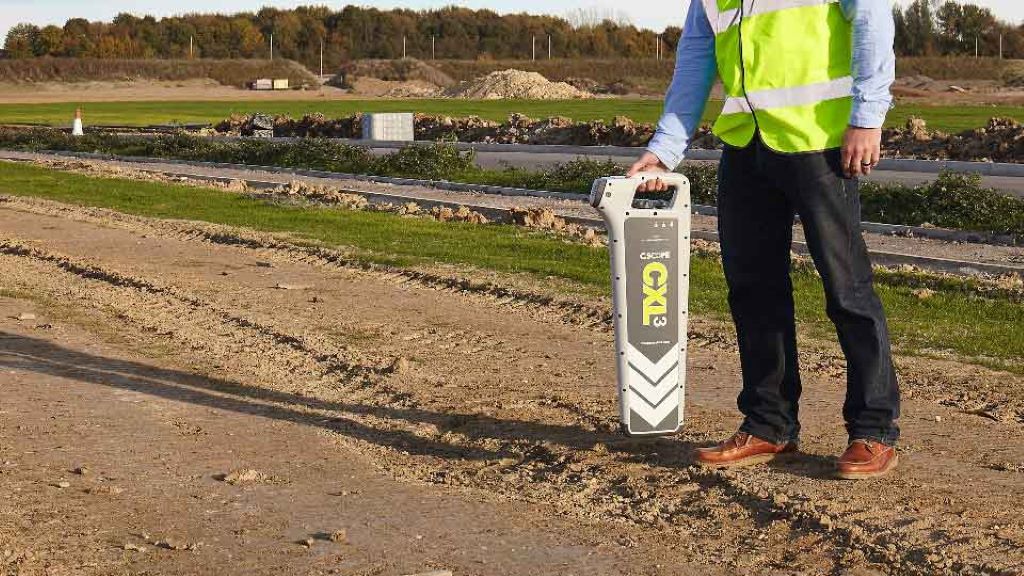If you have ever seen construction workers digging up the ground, you might have noticed a device that looks like a long metal pole with a pointed end. This is called a cable locator and it is used to detect underground cables.
Cable locators are crucial tools in many industries, from construction and excavation to utilities maintenance and repair. They help workers avoid damaging existing cables while they are working, which can lead to costly and dangerous consequences.
How Does a Cable Locator Work?
Cable locators work by detecting the magnetic field of underground cables. This is achieved through the use of electromagnetic induction. When an electrical current flows through a cable, it creates a small magnetic field around the cable. The cable locator picks up this signal and alerts the user to the presence of an underground cable.
To use a cable locator, the user simply needs to move the device over the ground in the area they want to work in. The device will display a reading when it detects a cable, indicating its direction and depth. This allows workers to carefully excavate around the cable without causing any damage.
Did you know how to locate underground utilities yourself? This isn’t a task to be undertaken lightly. You’ll need a cable locator – the very device we just discussed. It’s like a magic wand that senses the hidden world beneath your feet, helping you avoid unwanted surprises. Imagine you’re planning a garden, or perhaps thinking about installing a new fence. The last thing you want is to strike an underground cable and cause a neighborhood blackout, right?
Different Types of Cable Locators
There are two main types of cable locators: passive and active. Passive locators are used to detect cables that are already carrying electrical current, while active locators can send a signal through the ground to trace the path of a specific cable.
Passive cable locators are often used in construction and excavation projects, where workers need to avoid damaging underground cables that are still in use. Active cable locators are more commonly used by utility companies to locate and map out the paths of their underground cables for maintenance and repair purposes.
Advantages of Using Cable Locators
-
Safety: The most important advantage of using a cable locator is safety. By detecting underground cables, workers can avoid damaging them and causing potential hazards such as electrocution or power outages.
-
Time-saving: Without a cable locator, workers would have to dig blindly in an area and potentially hit underground cables, causing delays and setbacks. With a cable locator, they can quickly detect the presence of cables and work around them efficiently.
-
Cost-effective: Damaging underground cables can be extremely costly, not only in terms of repairs but also in terms of potential fines and legal consequences. Using a cable locator can prevent these costly mistakes.
-
Accuracy: Cable locators are highly accurate devices, allowing workers to pinpoint the exact location and depth of underground cables.
-
Versatility: Cable locators can detect a variety of different types of underground cables, including electrical, telecommunications, and even pipes and ducts.
FAQs
Q: Are cable locators difficult to use?
A: No, most cable locators are designed to be user-friendly and require little training to operate.
Q: Can cable locators detect underground cables in any type of ground?
A: Yes, cable locators can detect cables in a variety of ground conditions, including soil, concrete, and asphalt.
Q: Are there any safety precautions to take when using a cable locator?
A: It is important to always follow the manufacturer’s instructions and guidelines for safe operation of the device. Additionally, it is recommended to wear personal protective equipment while using a cable locator.
Q: Can cable locators detect multiple cables at once?
A: Yes, some cable locators have the capability to detect multiple cables in close proximity.
Q: Are there any maintenance requirements for cable locators?
A: It is recommended to regularly clean and calibrate your cable locator to ensure its accuracy and effectiveness.
Conclusion
Cable locators are essential tools for detecting underground cables in a safe and efficient manner. They provide numerous benefits such as safety, time-saving, cost-effectiveness, accuracy, and versatility. By using a cable locator, workers can avoid damaging existing cables and ensure the success of their projects. So next time you see construction workers with that long metal pole, you’ll know that they are using a cable locator to detect and avoid underground cables.
In addition to their utility in construction, cable locators are also instrumental in various other applications, including The fundamentals of sanitary sewer smoke testing. These devices play a crucial role in ensuring that sewer smoke testing procedures are conducted accurately and safely. So, whether it’s for construction or sewer testing, cable locators are indispensable tools for professionals in various industries.















